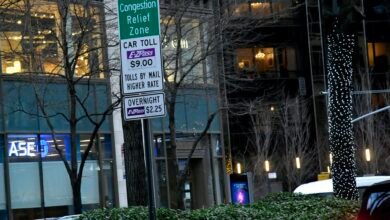NYC’s best Black History Month events

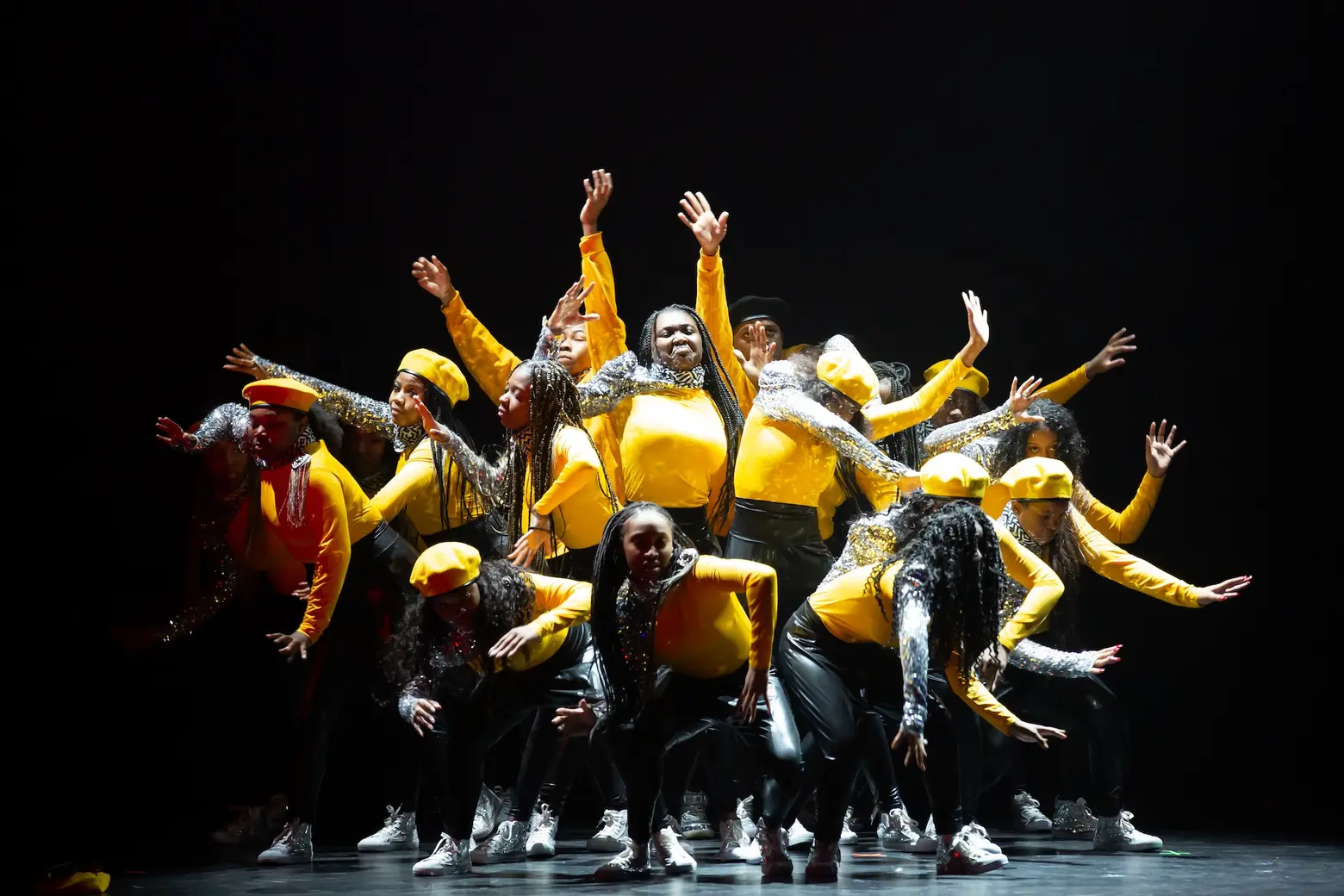
Forces of Nature Dance Theatre. Photo by Solwazi Afi Olusola
Even as the federal government attempts to downplay the significance of Black History Month, New York City will continue to celebrate. Throughout February, honor the contributions of Black people in New York and beyond with live performances, art, conversations, exhibitions, and more.
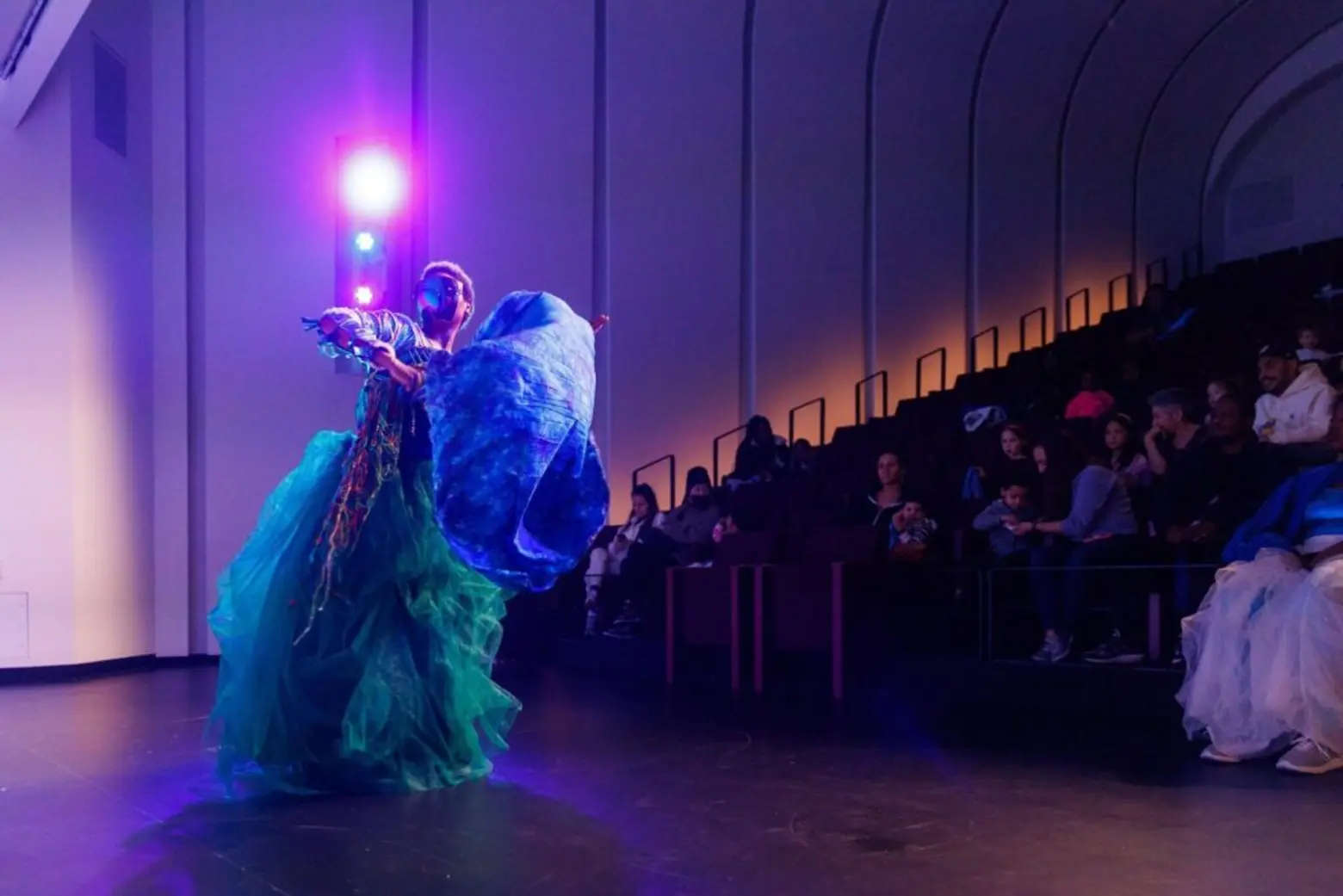
For a week of “reflection and future-forward fun,” head to the Brooklyn Children’s Museum this month. From February 16 to February 22, the Crown Heights museum will host the Black Future Festival, a weeklong program honoring Black culture with live performances, dance programs, storytelling workshops, and arts and crafts. In partnership with Bed-Stuy-based STooPS, the festival includes “BK Dreamers,” a dance performance exploring “visions for a thriving Brooklyn,” a family-friendly game show on Black history, a Soca dance workout class, printmaking workshops, and more. Get all the details on the Black Future Festival here.
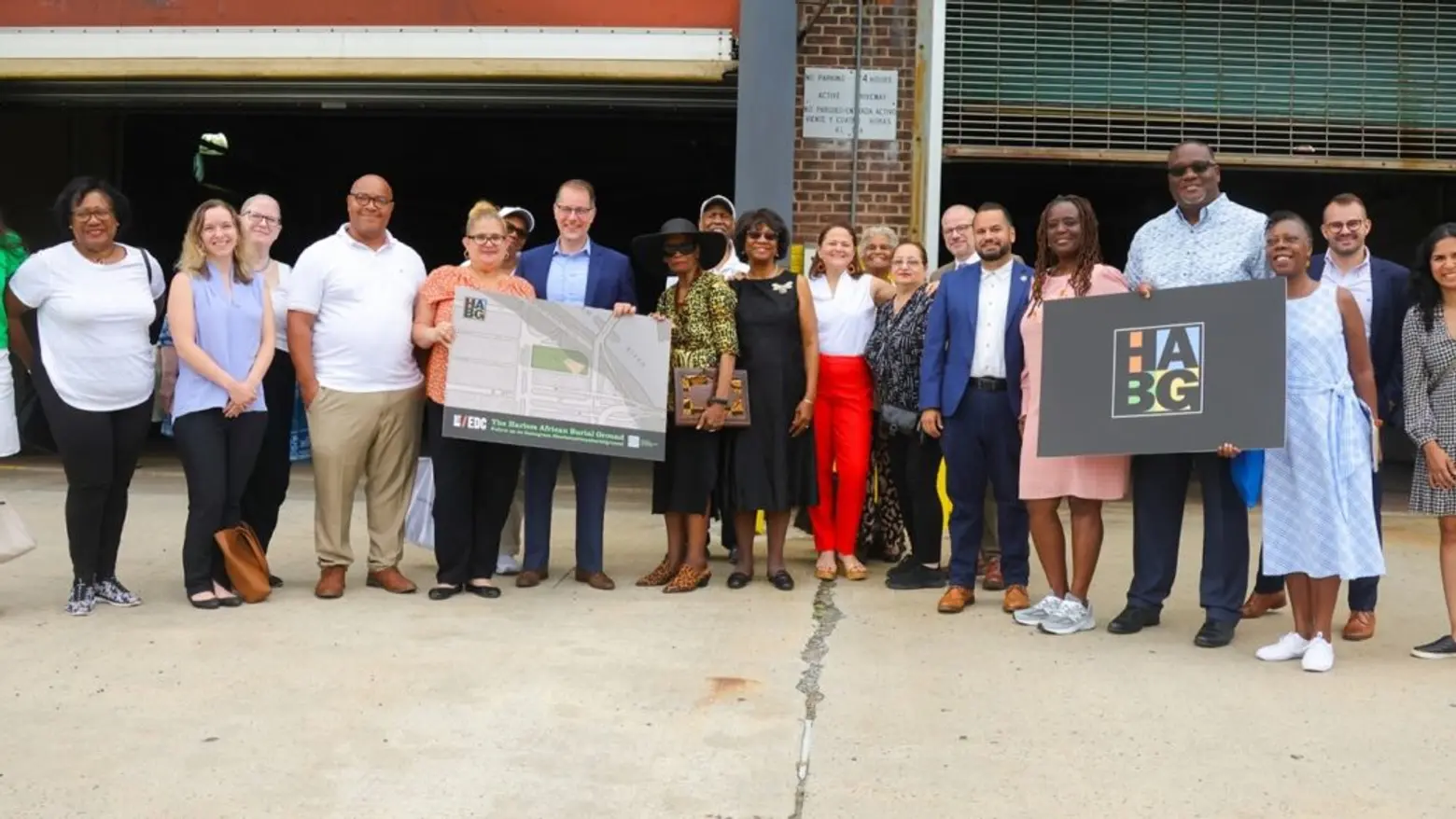
An African burial ground discovered in the early 2000s is finally getting the recognition it deserves. Located beneath the East 126th Street Bus Depot, the burial ground was associated with the former Reformed Low Dutch Church of Harlem dating to the late 17th century. A group of residents urged the city to honor the sacred site and in 2015, an archaeological investigation uncovered 140 human bones or bone fragments. The city’s Economic Development Corporation is working on creating a permanent outdoor memorial at the site, along with an indoor education center and a mixed-use project with affordable housing. On February 12, the Harlem African Burial Ground and NYCEDC will host a virtual conversation on the history of the site and the vision for the memorial and project. Hear from Manhattan Borough Historian Emerita Sharon Wilkins and the city on the importance of memorializing the site, followed by a Q&A segment.
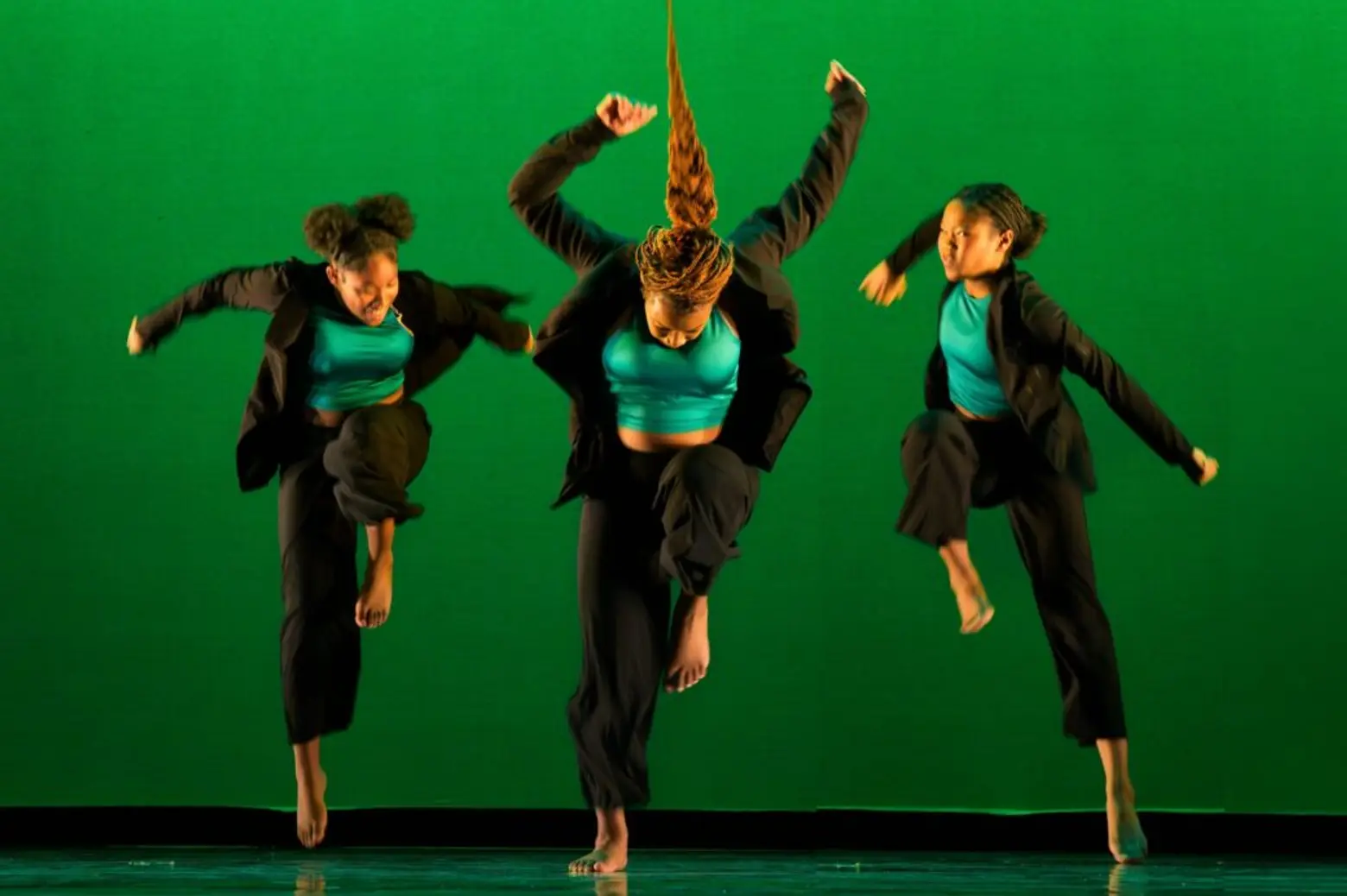
African performing arts organization Asase Yaa Cultural Arts Foundation is once again hosting its five-day celebration of Black History. Taking place at the Abrons Art Center on the Lower East Side from February 12 through February 16, the Rhythms & Movements of African American Cultural Festival includes 14 performances, six youth performances, four headlining events, a post-music concert, a visual arts exhibit, and spoken word performances. With the theme “Revolution Requires Resistance,” the festival aims to explore identity, activism, and cultural resistance through performance. See the full line-up of events and buy tickets here.
This month at the New York Botanical Garden, explore the botanical legacy of the African diaspora. Throughout February, the garden will host on-site and online events and activities highlighting how the “Black experience–from gardening and science to arts and culture–has shaped our relationship with plants.” On February 27, the garden hosts a talk with author and gardner Teri Speight, whose publication “Black Flora: Inspiring Profiles of Floriculture’s New Vanguard,” profiles experts innovating in the world of flowers. There’s also a school program hosted by the NYBG’s Edible Academy that teaches students about the living and preserved plants tied to the African American Diaspora. Each child pots and takes home their own collard green plant and works together to mix hibiscus, ginger, and cloves to make a sorrel tea recipe. In the Mertz Library, an archival exhibit showcases “hidden figures” of NYBG’s history from the 1930s to the 1950s. Get more details on the garden’s Black History Month events and activities here.
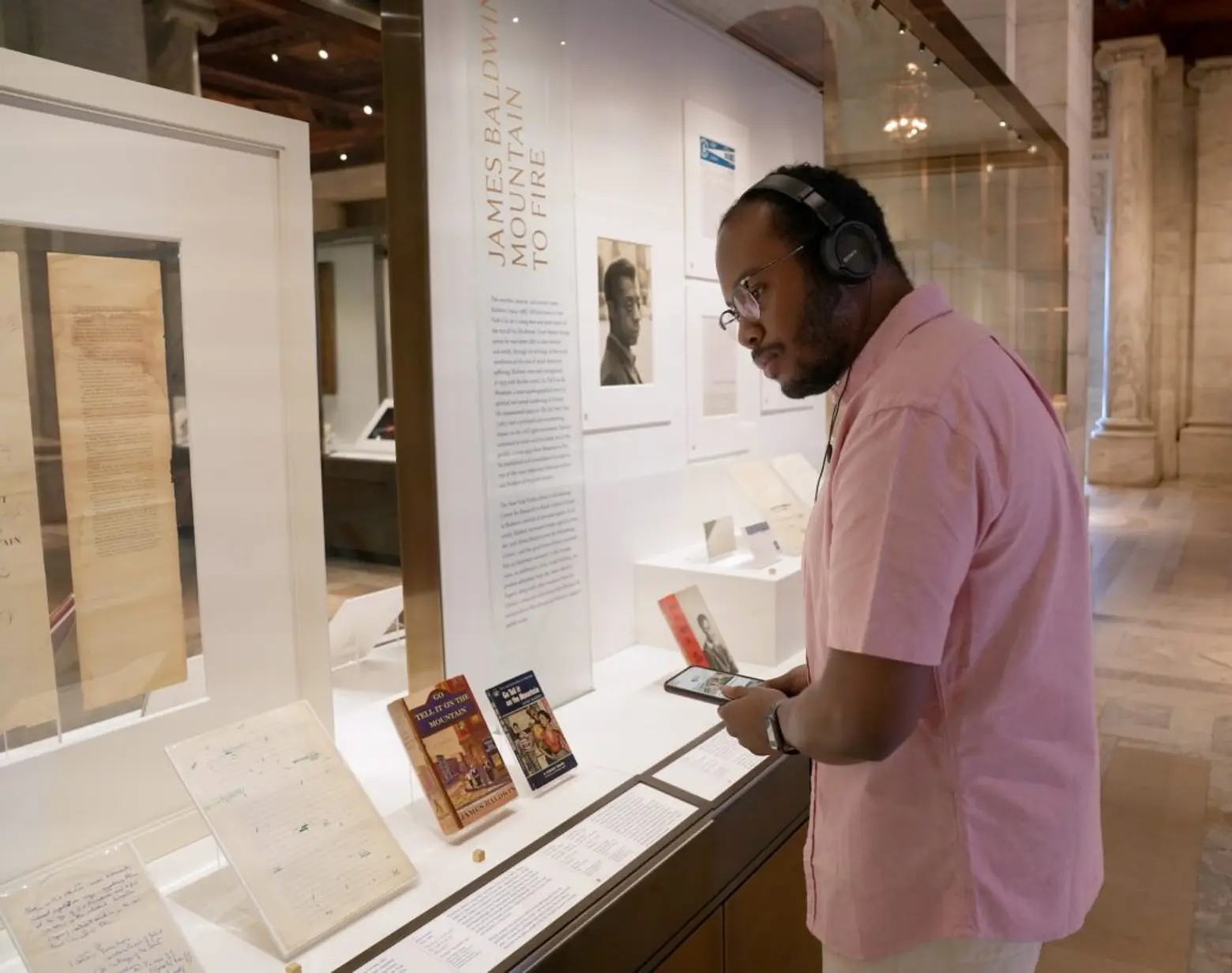
The Schomburg Center for Research in Black Culture is celebrating its 100th anniversary this year. Considered one of the world’s best institutions in the preservation and study of African American, African Diasporic, and African experiences, the Schomburg Center boasts a collection of over 11 million items. The institution’s centennial celebration kicks off in May, with an exhibition exploring the library’s history, new programming, a special Schomburg Center-themed library card, and a festival on June 14.
Ahead of the festivities this spring, Schomburg Center and the New York Public Library will host several programs and offer book recommendations for Black History Month. Visit the library’s exhibit celebrating 100 years of James Baldwin, listen to author Sarah Lewis discuss her book “The Unseen Truth: When Race Changed Sight in America, ” and discover your next read with the Schomburg Center’s Black Liberation Reading List.
The Museum of Food and Drink (MODAD) is hosting an event with the country’s first legal Black distiller, Jackie Summers. In 2012, the Brooklyn native was the first Black person to be granted a license to make liquor after making small-batch sorrel, a traditional Caribbean drink made from hibiscus. On Thursday, February 13, Summers will join culinary historian Ramin Ganeshram for a discussion on the food and drink legacy of the African Diaspora. Sip on sorrel cocktails and learn about the history of the drink. Tickets cost $40 and can be purchased here.
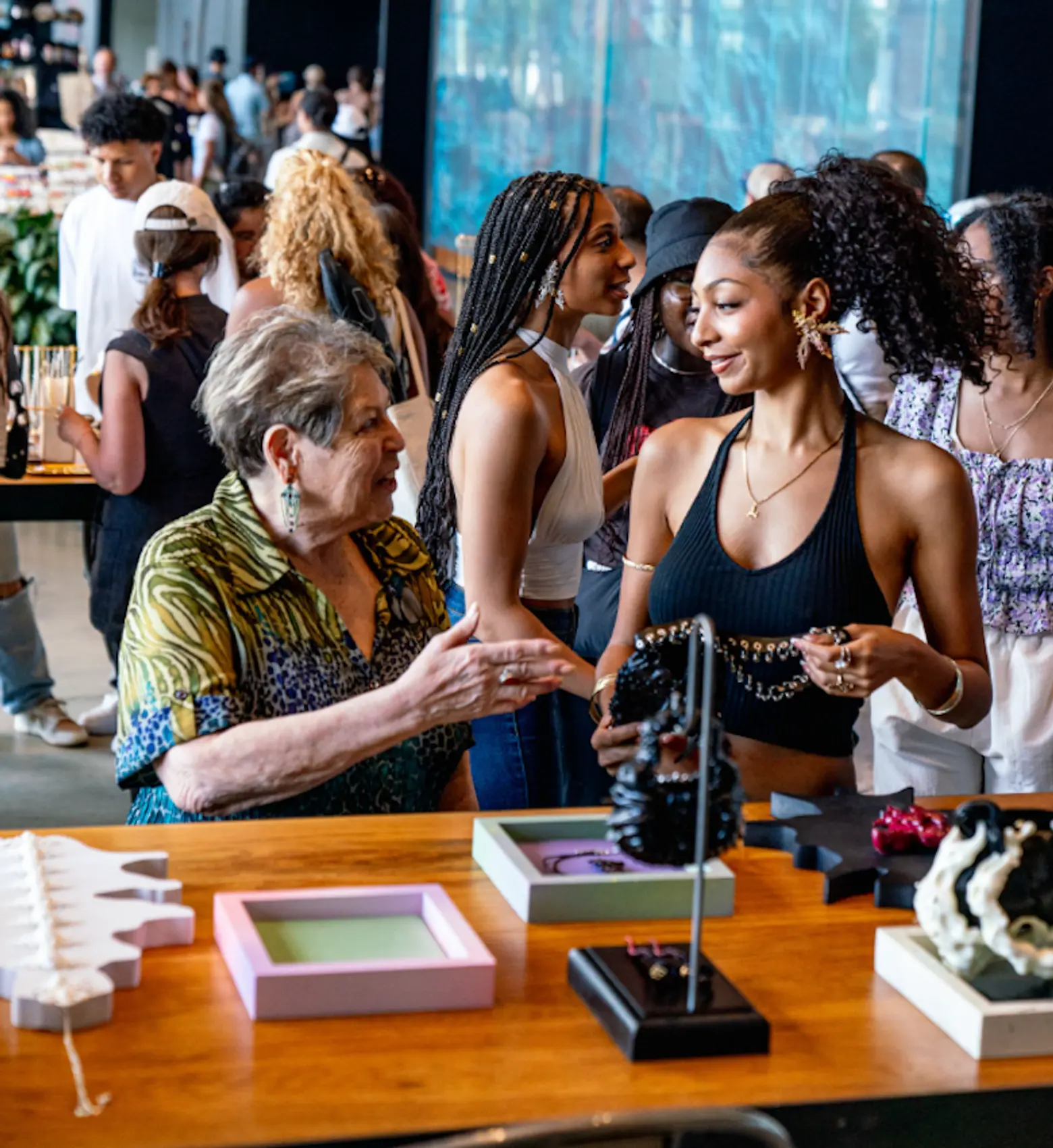
In celebration of Black History Month, Blacklist NYC is hosting a market featuring local artists and makers of color. On February 15 from 1 p.m. to 6 p.m., the Buy Black Marketplace will take over the Living Room at the waterfront food hall and event space Pier 57 in Chelsea with artists and vendors selling fine art, crafts, jewelry, and more.
Celebrate Valentine’s Day with a love letter to the legacy of Black music. Hosted by the Metropolitan Museum of Art, “Electric Root: Let Love Lead” takes place on Friday, February 14, and includes performances by C. Anthony Bryant, Brianna Thomas, and Charenee Wade, who will “celebrate the profound power of this music to lift spirits, evoke joy, and inspire resilience. Tickets start at $35.
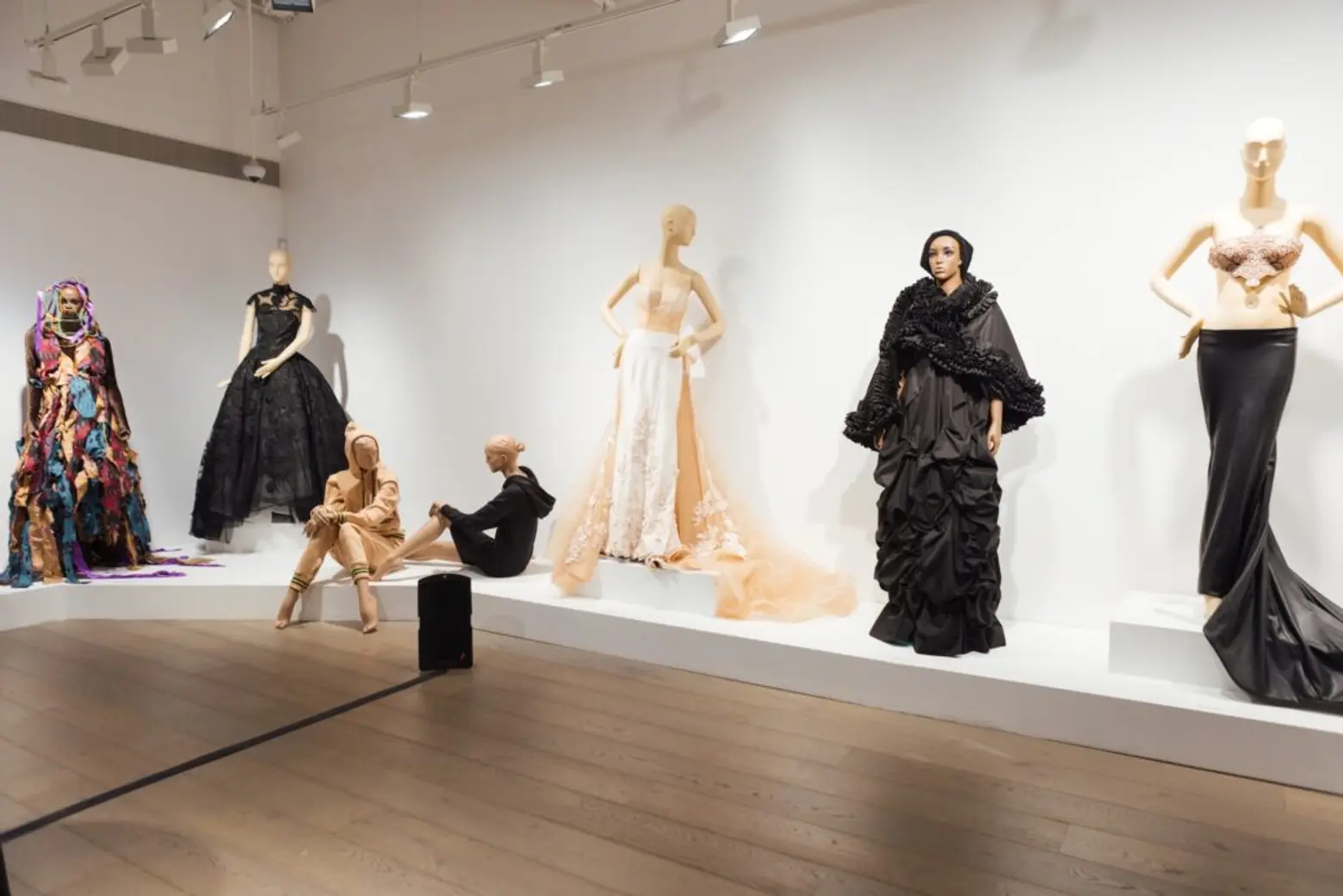
Ten years since the original Black Dress exhibition that opened in 2014 at Pratt Manhattan Gallery, “Black Dress II: Homage” celebrates the influence of Black creatives in the fashion industry. Coiniciding with New York Fashion Week, the exhibition highlights the contributions of Black designers, tailors, models, stylists, and journalists through photography, personal stories, and immersive installations.
Curated by Pratt Fashion Professor Adrienne Jones with her partner Rachelle Etienne-Robinson, “Black Dress II” features designers like Paul Tazewell, Fabrice, Stephen Burrows, and Patrick Kelly. Open from 11 a.m. to 6 p.m., the free exhibition runs through March 22.
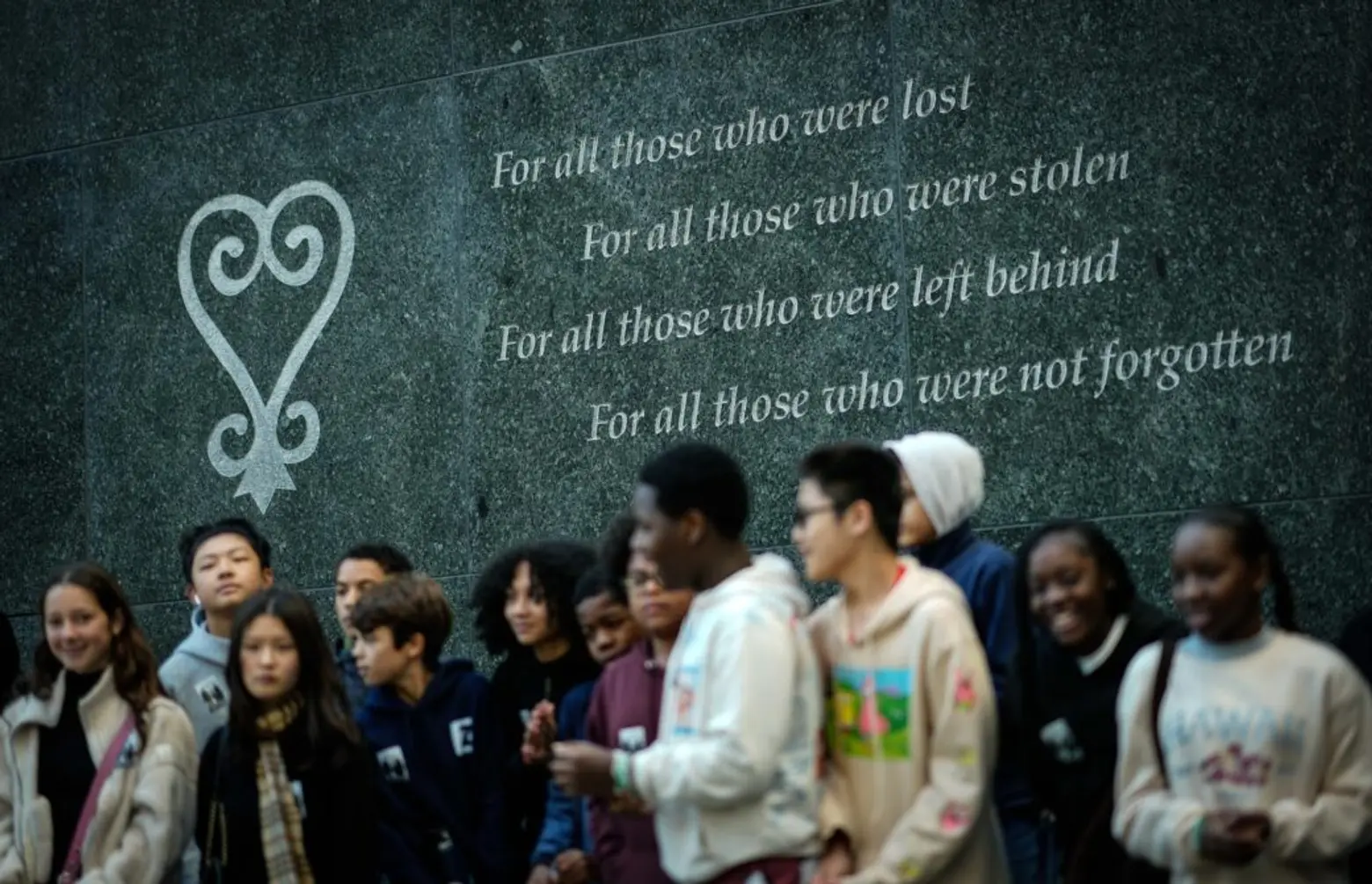
Remember NYC’s history of slavery
New York was the capital of slavery in the United States for nearly 200 years. In the years before the American Revolution, more enslaved Africans lived in NYC than anywhere else in the country, except South Carolina. While New York later became a hub of abolition and anti-slavery efforts, officially ending slavery in 1827, the city continued to profit from the illegal slave trade and the trade of goods produced by enslaved labor. Many businesses, including banks, continued to profit from slavery up until 1886.
The African Burial Ground National Monument, which opened in 2007, became the first national monument dedicated to Africans of early New York. The indoor visitor center and outdoor memorial are open 10 a.m. to 4 p.m. every day but Monday.
A panel discussion hosted by the First Presbyterian Church, the Merchant’s House Museum, and Village Preservation on February 12 will examine the congregation’s connection with slavery and the slave trade. The “Old First and Slavery” report covers the period of the church’s founding through the end of the Civil War, detailing the way in which the church was supported by individuals who owned slaves. The event is free to attend, but registration is required here.
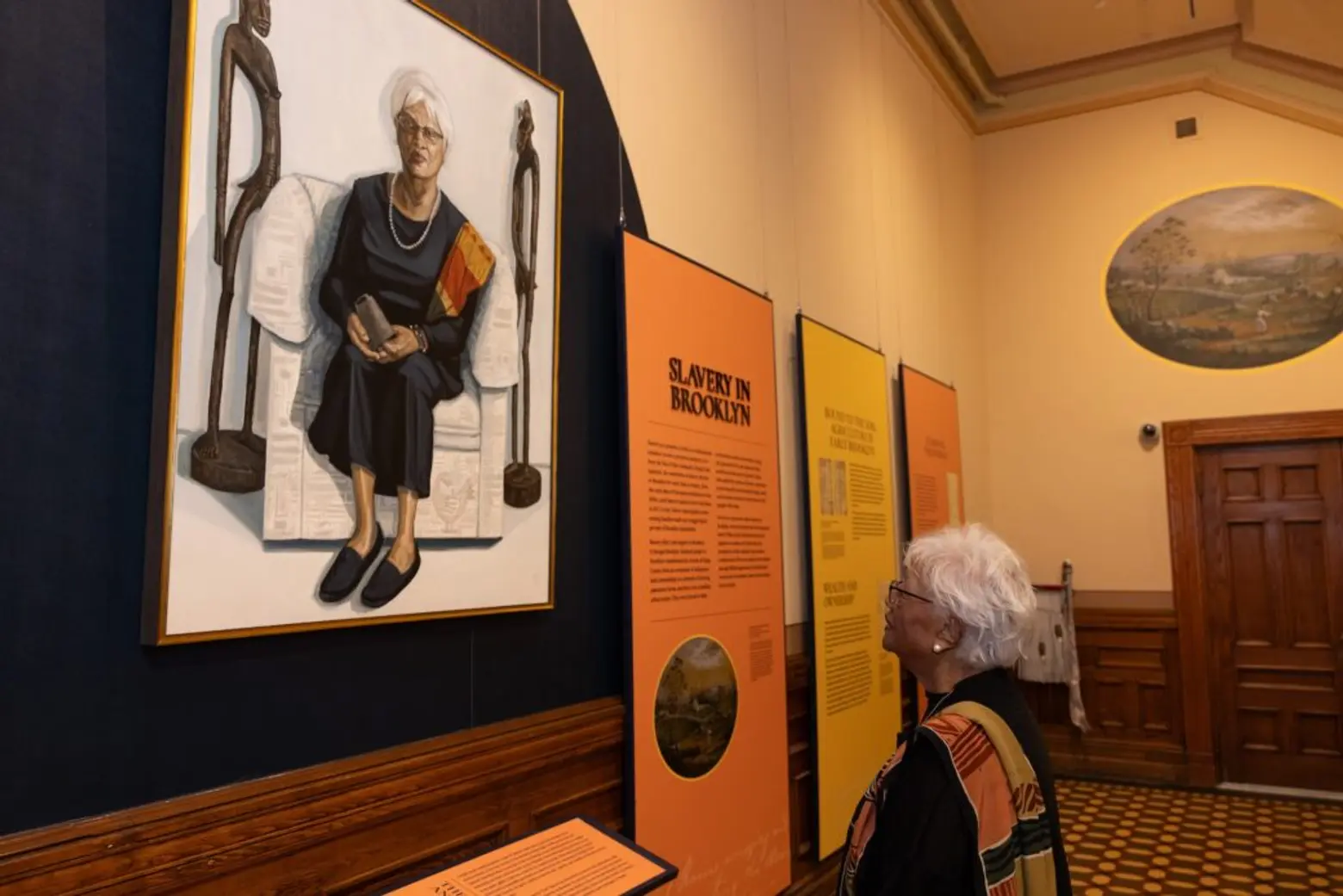
In Brooklyn, a new exhibition looks at the impact of slavery in the borough. Now open at the Brooklyn Public Library’s Center for Brooklyn History, Trace/s: Family History Research and the Legacy of Slavery in Brooklyn, uses artwork, historical records, and research to explore how slavery shaped the borough’s social, economic, and physical landscape. Large-scale portrait paintings reflecting two family histories anchor the exhibit, including Mildred Jones, the great-great-granddaughter of Samuel Anderson, enslaved in Flatbush, and John A. Lott, the nephew of Jeremiah Lott, who enslaved Anderson.
On view through August 30, the exhibit includes free programs, like genealogy workshops, panel discussions, walking tours, and more.
Source link




